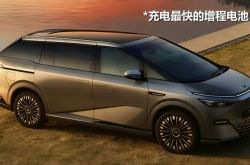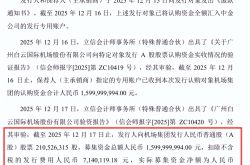"Eating up" Denza completely, what does BYD want to do?
![]() 09/19 2024
09/19 2024
![]() 576
576

Introduction
Introduction
The road to rise must be cleared.
During the just-concluded Mid-Autumn Festival holiday, if you count the biggest news worthy of attention in China's auto circle, I believe it is BYD's complete "eating up" of Denza.

According to relevant news, there has been a change in shareholding of Shenzhen Denza New Energy Automobile Co., Ltd. BYD's wholly-owned subsidiary BYD Auto Industry Co., Ltd. has increased its shareholding ratio from 90% to 100%, and the subscribed amount has increased from 6.984 billion yuan to 7.76 billion yuan.
Correspondingly, Mercedes-Benz (China) Investment Co., Ltd., which originally held a 10% stake, has completely withdrawn. In terms of Denza's board of directors, Hans Georg Engel, the former director and Senior Executive Vice President of Mercedes-Benz (China) Investment Co., Ltd., has resigned.
So far, it can be said that after 14 years of ups and downs, Denza has officially transformed from a joint venture brand empowered by BYD and Mercedes-Benz into a pure independent brand.
Of course, as the saying goes, "Every past has its meaning."
Let's first go back to 2010, when the discourse power of China's auto industry was firmly held by foreign-funded automakers.
At that time, the still young BYD chose to "join hands" with Mercedes-Benz and jointly established Shenzhen BYD Daimler New Technology Co., Ltd., with each party holding 50% of the shares.

Denza became the first joint venture brand in China to focus on the new energy sector.
Soon, it was 2014. After joint efforts and continuous development, the brand's first pure electric vehicle was globally launched at the Beijing Auto Show and officially launched in October of the same year.
Denza delivered its first answer sheet.
However, looking at the overall market, China's new energy market at that time could only be described as chaotic, with a distorted "saddle-shaped" distribution of consumption structure.
Denza, which happened to be in the middle, was in an awkward position. In the following years, although it occasionally sparkled with some highlights, it did not make much of a splash overall.
Fortunately, all efforts pay off. 2021 can be considered the first year of China's new energy vehicle industry. Whether from the cumulative sales of the entire market, the maturity of end-user awareness, or the transformation of consumption structure, there have been increasingly positive changes.
Taking advantage of this opportunity, after long-term consideration, BYD and Mercedes-Benz jointly announced plans to increase their respective investments in Denza by 1 billion yuan each.
It is particularly noteworthy that the two parties also adjusted Denza's shareholding structure from the original 50%:50% to 90%:10%.

Who will lead and who will assist is clear at a glance.
The next part of the story is more familiar to many people. Closely adhering to the brand positioning of "new luxury," BYD invested significant human, material, and financial resources to conduct a comprehensive reform of Denza's technology, products, channels, and marketing.
Ultimately, after the transformation, Denza was able to firmly establish itself in China's new energy market.
Now, with the last 10% of the shares acquired by BYD, Denza has undoubtedly turned a new page. The protagonist of today's article is bound to further concentrate its superior resources and sprint forward with a more fierce attitude and efficiency.
In the following sections, I would like to share my rational and objective opinions on a few points.
First, Mercedes-Benz's "exit" is more like a peaceful parting, fulfilling its mission relatively satisfactorily and providing a model for Denza to build a high-end brand.
With BYD's current momentum and position in China's new energy market, it is fully capable of carrying the burden of Denza alone.

Of course, this long-time self-proclaimed "global leader in new energy vehicles" still wisely chose to leave an "opening" by indicating that it does not rule out cooperating with Mercedes-Benz again in other areas.
In other words, "in the future, anything is possible."
Second, in terms of end sales alone, BYD, which is striving for 3.6 million or even 4 million vehicles annually, is indeed becoming unstoppable.
However, when trying to break down the specific composition, in the sub-market below 200,000 yuan, it relies on an almost "saturated" attack, leveraging the Dynasty and Ocean networks to capture the largest share.
But in the sub-market above 200,000 yuan, even with Denza, FANGCHENGBAO, and NIO, BYD's current efforts to expand upwards have not been as sweeping as expected.
Compared to the personalized and professional FANGCHENGBAO and the ultra-luxury NIO, Denza, which has entered the mainstream luxury segment, undoubtedly shoulders more responsibilities as a bridge between the past and the future.
BYD clearly understands that "it must not fail."

After all, to become a true industry "giant," it must enhance its own value and prove itself in the market above 200,000 yuan.
BYD's complete "eating up" of Denza is actually sending a strong signal to the outside world that "I am taking this seriously and starting to put in the effort."
Furthermore, it is not alarmist to say that Denza cannot afford to be complacent.
Although the brand has shown many highlights since its transformation, with 9,989 new vehicles sold in August alone and 79,894 new vehicles sold in 2024, looking deeper, it is undeniable that apart from the D9, which has sold over 200,000 units since its delivery and is the fastest new energy luxury MPV to achieve this milestone, Denza's product matrix lacks another strong pillar. The N8 has gradually faded from the stage, and the new N7 is struggling in the "red ocean" of mid-sized pure electric SUVs.
To rise and increase sales, Denza must find a way to break through. More bluntly, referring to the development of BBA, selling well in both sedans and SUVs is a sign that a brand has truly established itself in the luxury market.

That is why, on September 20, Beijing time, the upcoming launch and announcement of the price of the fully equipped Z9GT will be a crucial battle for Denza in the near future.
If successful, the above problems will be solved; if not, troubles and challenges will intensify.
Of course, it is foreseeable that the upcoming three-box Z9 and the continuously leaked N9, which is benchmarked against Lixiang L9 and AITO M9, will also make indispensable contributions.
In short, Denza has entered a period of innovation that will determine its future development this year. From MPVs to sedans to SUVs, each segment needs a strong pillar.
And as BYD completely "eats up" Denza, whether it can write a more vivid chapter on this new page remains to be seen as we move forward.





